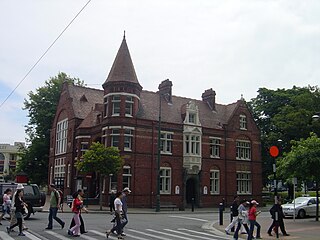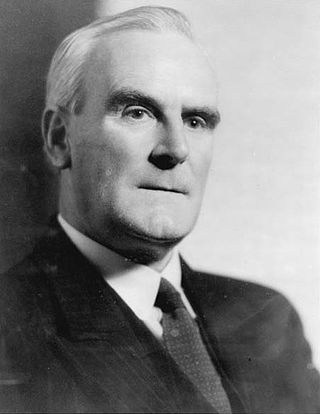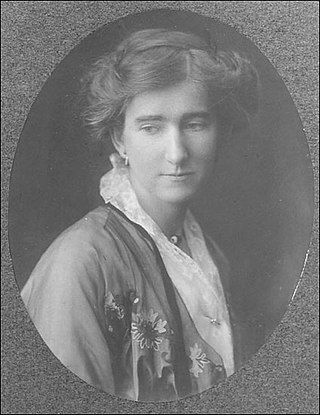
John Howard FRS was a philanthropist and early English prison reformer.
Elizabeth Audrey Gordon is a former New Zealand politician. She was an MP from 1996 to 2002, representing the Alliance.
The Howard League for Penal Reform is a registered charity in the United Kingdom. It is the oldest penal reform organisation in the world, named after John Howard. It was founded as the Howard Association in 1866 and changed its name in 1921, following a merger with the Penal Reform League. The charity focuses on penal reform in England and Wales.

Mabel Bowden Howard was a well-known New Zealand trade unionist and politician. She was the first woman secretary of a predominantly male union.

Christchurch City Libraries is a network of 21 libraries and a mobile book bus. operated by the Christchurch City Council and Following the 2011 Christchurch earthquake the previous Christchurch Central Library building was demolished, and was replaced by a new central library building in Cathedral Square, Tūranga, which opened in 2018. A number of community libraries were also rebuilt post earthquake.
The National Council of Women of New Zealand was established in 1896, three years after women in New Zealand won the right to the vote, as an umbrella organisation uniting a number of different women's societies that existed in New Zealand at that time. Its founding president was Kate Sheppard, who had led the campaign for women's suffrage. The NCWNZ went into recess in 1906 but was reformed in 1919. As of 2021, the NCWNZ remains a leading and influential organisation that works to achieve gender equality in New Zealand. Since 1896, members have agreed resolutions by majority vote at national conferences, which form policies for the NCWNZ's work. These resolutions inform submissions made by the NCWNZ to Parliament, government departments and other organisations.

Crime in New Zealand encompasses criminal law, crime statistics, the nature and characteristics of crime, sentencing, punishment, and public perceptions of crime. New Zealand criminal law has its origins in English criminal law, which was codified into statute by the New Zealand parliament in 1893. Although New Zealand remains a common law jurisdiction, all criminal offences and their penalties are codified in New Zealand statutes.

The Civic was a building in Manchester Street, central Christchurch, that was erected in 1900 and demolished in 2011. It was first used as an exhibition hall, then as a cinema, and then a theatre, before being gutted by fire in 1917. The northern part of the building was purchased by Christchurch City Council (CCC) and opened as the civic office in 1924, and served this purpose until 1980. After that it had several uses, including a restaurant, bar and live music venue. The building was heavily damaged in the February 2011 Christchurch earthquake, and was demolished.

Our City, more formally Our City O-Tautahi, also known as the Old Municipal Chambers, is a Queen Anne style building on the corner of Worcester Street and Oxford Terrace in the Christchurch Central City. It is a Category I heritage building registered with Heritage New Zealand. From 1887 to 1924 it was used by Christchurch City Council as their civic offices, providing room for meetings of the council and for housing staff, before they moved to the Civic. It was then used for many decades by the Canterbury Chamber of Commerce and served as the main tourist information. It was last used as an exhibition and events centre before being damaged in the Christchurch earthquakes. It is due to be reopened in June 2024.
Alice May Parkinson was a New Zealand murderer. Her subsequent trial and conviction became a subject of contemporary controversy for New Zealand socialist and feminist campaigners due to the perceived severity of her sentence compared to male criminals.
Frederick Archibald de la Mare was a New Zealand lawyer and educationalist. He was born in Christchurch, New Zealand, on 6 August 1877.

Berkeley "Bert" Lionel Scudamore Dallard was a New Zealand accountant, senior public servant and prison administrator.
Eveline Willett Cunnington was a New Zealand social reformer, feminist, lecturer and writer. Cunnington was a strong advocate against the exploitation of children and young women and for prison reform. In later years, she advocated for socialism and labor reform.
Violet Alberta Jessie "Berta" Burns was a New Zealand journalist and political activist. She was born on 12 March 1893.

Mary Ursula Bethell, was a New Zealand poet. She settled at the age of 50 at Rise Cottage on the Cashmere Hills near Christchurch, with her companion Effie Pollen, where she created a sheltered garden with views over the city and towards the Southern Alps, and began writing poems about the landscape. Although she considered herself "by birth and choice English", and spent her life travelling between England and New Zealand, she was one of the first distinctively New Zealand poets, seen today as a pioneer of its modern poetry.

Blanche Edith Baughan was a New Zealand poet, writer, botanist and penal reformer.
Beatrice Eleanor Beeby was a New Zealand educator. She was key figure in the establishment of the nursery playcentre movement in New Zealand, which developed into the present-day Playcentre organisation.
The Canterbury Women's Institute was a privately funded think tank based in Christchurch, New Zealand, which existed from November 1892 until November 1921. Its primary scope involved the study of and advocacy for women's rights. Originally non-partisan, the Institute became more left-leaning and supportive of specific political parties.








